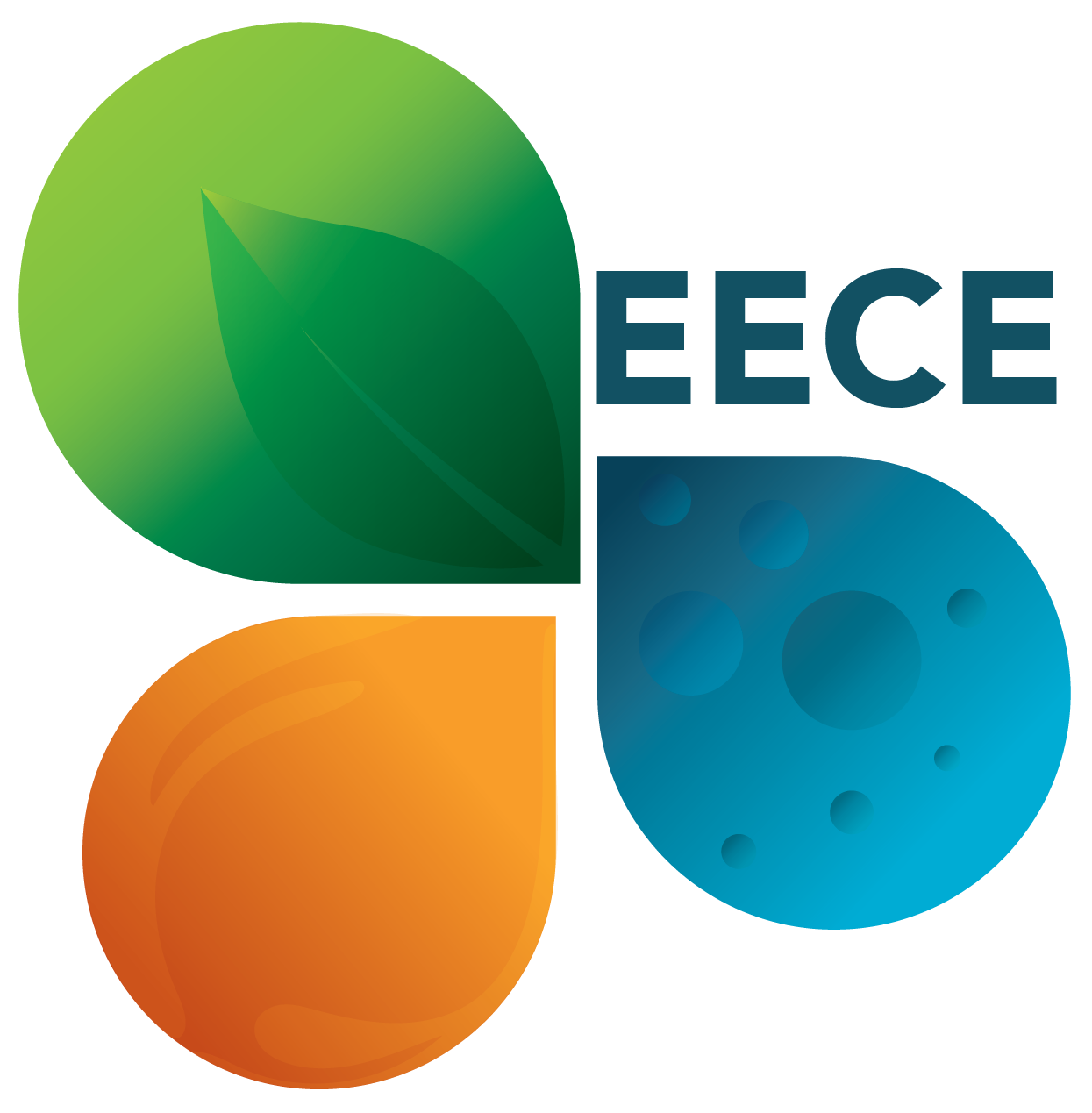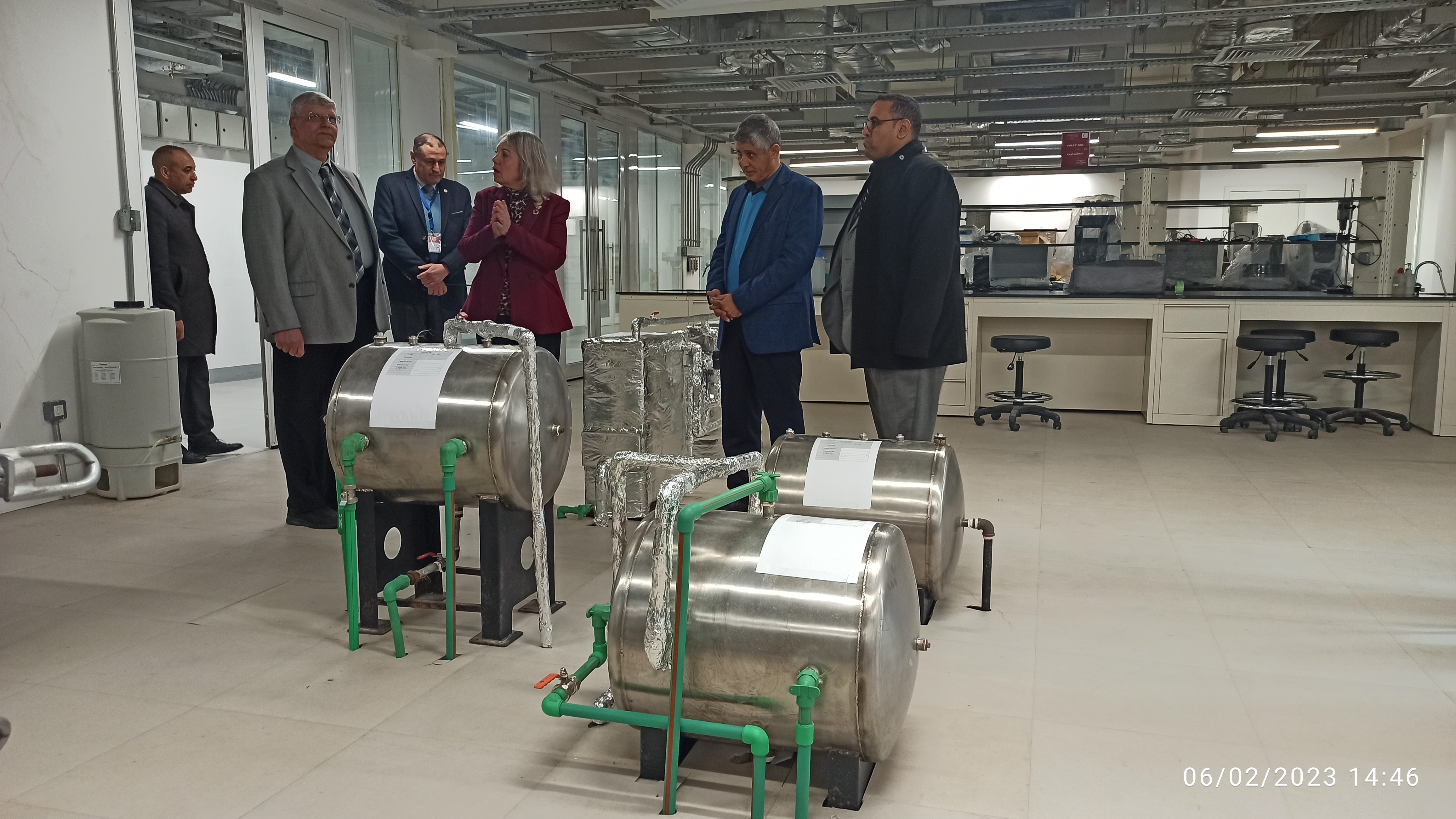
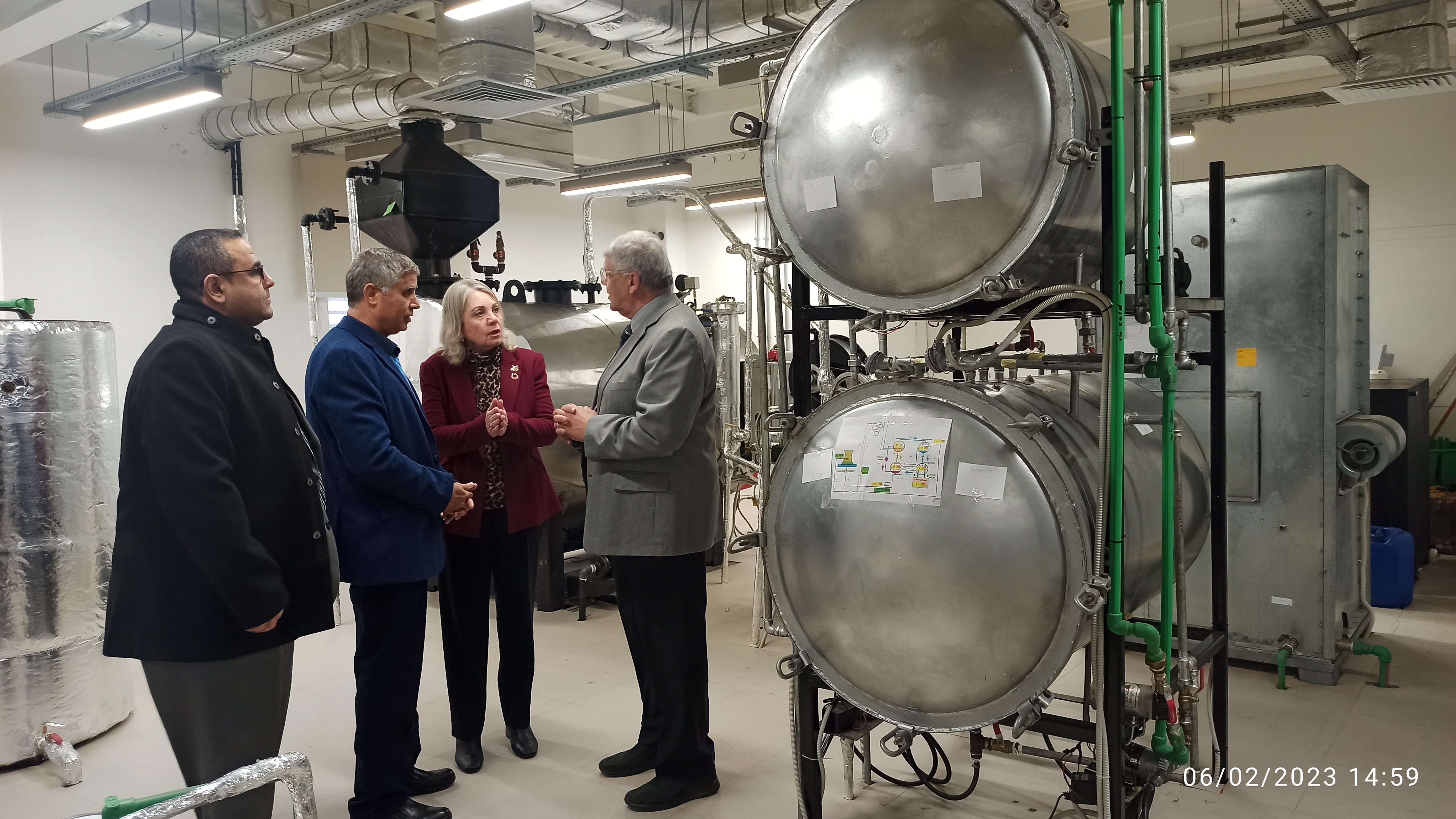
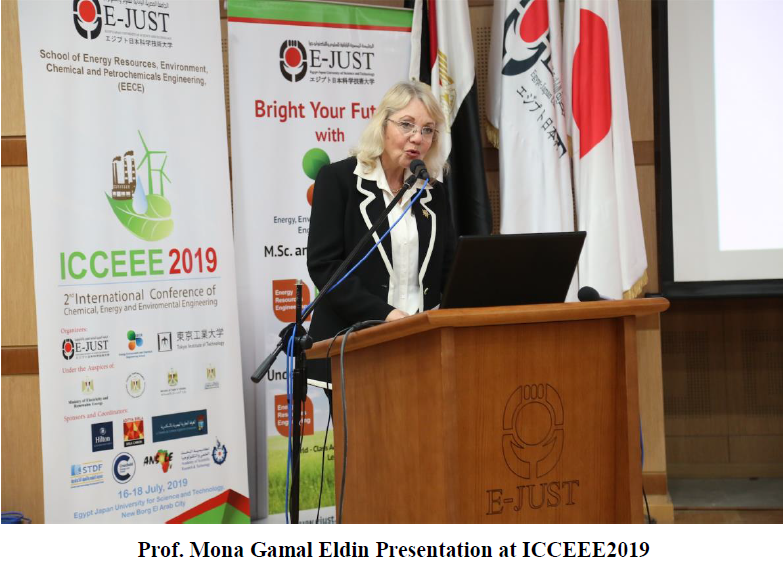
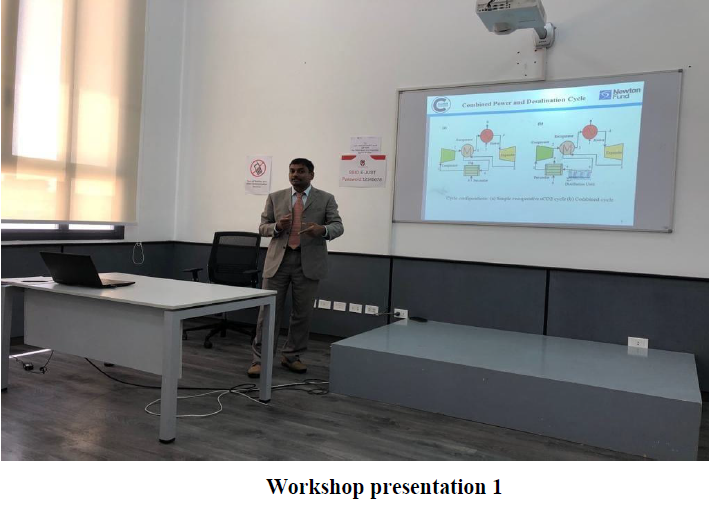
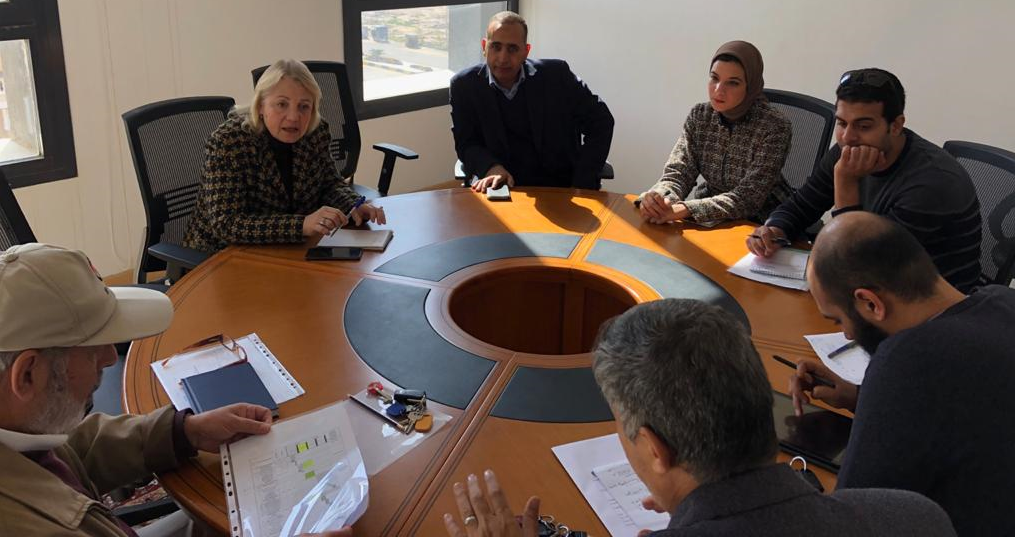
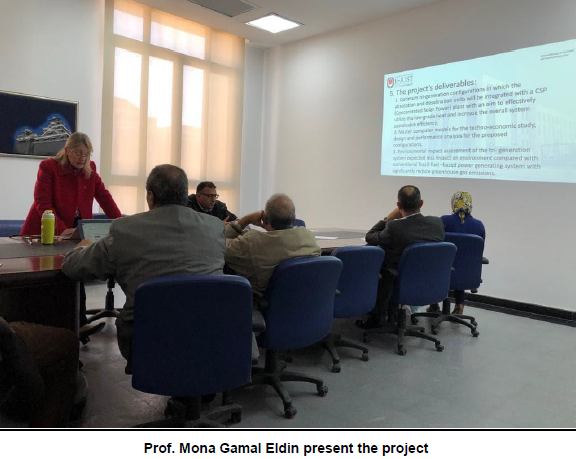
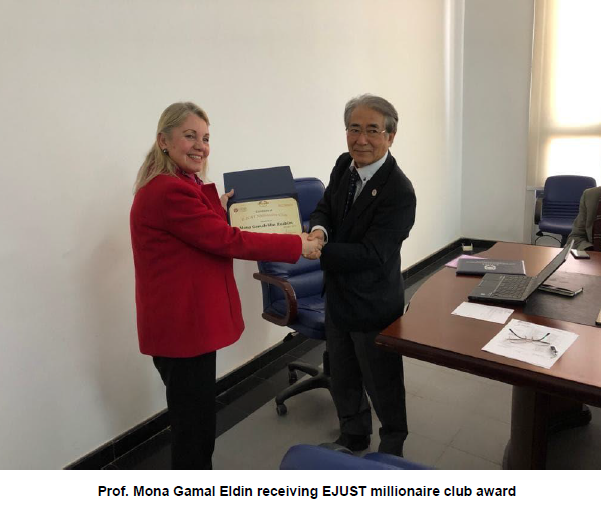
Low grade heat recovery for absorption chiller and desalination from concentrated solar powered steam power plants in Egypt
Starting date: January, 2020.
End date: February, 2023.
PI: Prof. Mona Gamal Elin Ibrahim.
Funded by: STDF
Summary:
Energy and water sectors in Egypt are currently facing a demand-supply challenge. Egypt’s growing population, (~100million with 2-3 % annual increase) led to a significant rise in the demands in residential, transportation, and industrial sectors. There is an increasing use of the generated power (~30%) for driving conventional cooling systems. This affects not only human lives, but it has a detrimental impact on local communities, society, and economies. Boosting and improving energy sustainable efficiency across all sectors is essential and a high priority in the current government’s enlargement agenda.
On the other hand, Egypt is one of the richest solar intensity regions (~4000 sunny hours/year) to generate thermal/electrical energies, and the use of low-grade heat to run desalination and absorption units can offer a good opportunity to provide both clean energy and fresh water. It can be the next significant technological breakthrough. With the increased awareness of the environmental impacts and climate change, the use of residual heat could make an important contribution to the realization of all dimensions of the Egypt 2030 plan, particularly the energy and urban development pillars. This project achieves the UN SDGs 2030. It is serving as an example of how innovative water-energy integrated solutions can improve human life and reduce the water-energy demand during shortage periods. Technically, this project introduces a tri-generation of electricity, water and space cooling across all the sectors.
The specific impact of this integrated approach will allow the continuous production of low-cost water and energy gains to the benefit of local communities.
Objectives and Impact:
The main positive impact of the project will be to the local communities who are heavily affected by pollutions that come from fossil-based power plants. The system performance results show that:
- a) The plant is working with 62% capacity factor.
- b) Making turbine power varies with electricity demand reduces the fuel consumption from 126 to 98 kg/day with 22.22% reduction.
- c) The system can produce the required water, cooling, and electricity for a small community (of 185 household, one small shop and one school and based on Rural African Load Profile Tool) with fuel consumption of 98 kg/day in a typical winter day.
The technology integration developed in this project will be appropriate to the environment and economic conditions of Egypt and could be used in other developing countries. The identified stakeholders are energy-water utility communities, technicians/operators, equipment manufacturers. This project will:
- Optimize tri-generation configurations in which the absorption and desalination units will be integrated with a CSP plant with an aim to effectively utilize the low-grade heat and increase the overall system sustainable efficiency.
- Master computer models for the techno-economic study, design, and performance analysis for the proposed configurations.
- Create a prototype of an optimum demo tri-generation pilot test unit of 10 kW electricity, 1m3/day water, and 10 kW cooling load. Development of a new MED tube configuration that ensures film surface wetness for higher evaporation rates.
- Provide dissemination and knowledge exchange through publication in peer-reviewed journals. Knowledge transfer between partners via student exchange for a known periods, pilot testing and assessing transferability in future research projects.
The Project team in Egypt carried out a detailed simulation of thermo-economic analysis of a system combining Solar Power System (SPS), Multi Effect Desalination (MED) system, and Absorption Refrigeration System (ARS) powered by solar energy with a backup natural gas heater. The pilot test unit is designed and is now being constructed. The project team chose the best place at E-JUST to settle the pilot paying attention to the height, protection factors, and water analysis. The team behind the project has made several technological breakthroughs such as 20 percent reduction in fuel usage than in typical commercial systems, 60 percent capacity factor usage with improved quality.
On July 17th, 2019, the project team organized a workshop at E-JUST to demonstrate the project findings and reaching to local communities. In addition, Prof. Mona Gamal Eldin, the PI gave a public seminar on the project at E-JUST to the public and E-JUST members.
Concerning publications, the PI et al have published a conference paper titled "Numerical Simulation for Falling Film Thickness Around Horizontal Tube in MVC and MED Evaporators" in ICCEEE 2019, EJUST. Another paper is under publication titled " Operational Performance of Stand-alone Solar Driven Tri-Hybrid System for Electricity, Cooling, and Water Production".
SDGs that the project achieve:
Goal 6: Clean water and sanitation
Goal 7: Affordable and clean energy
Goal 11: Sustainable cities and communities
Goal 13: Climate action
Goal 17: Partnerships for the goals
